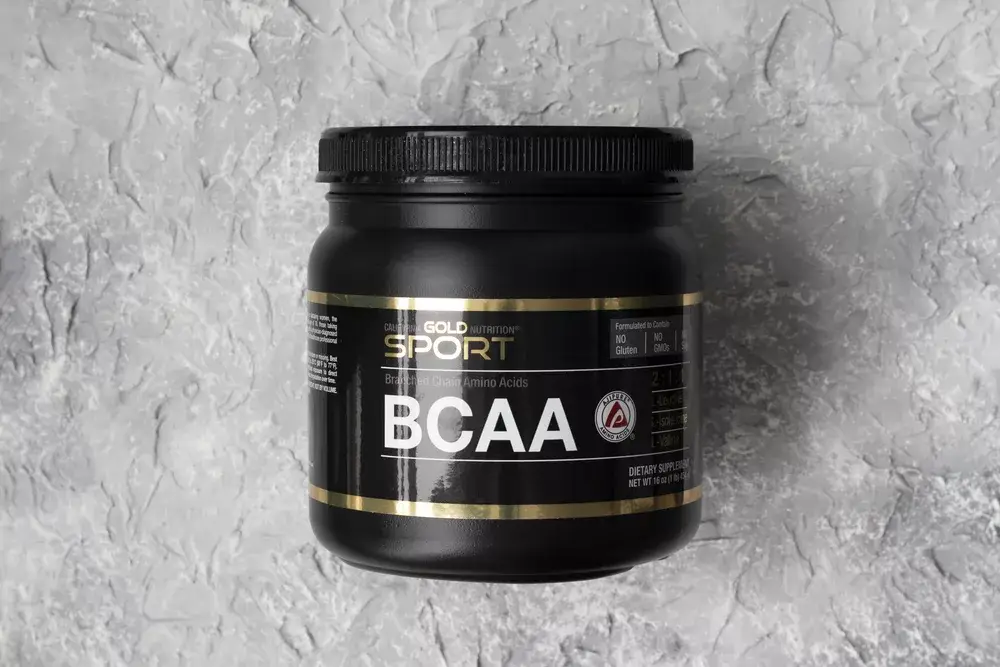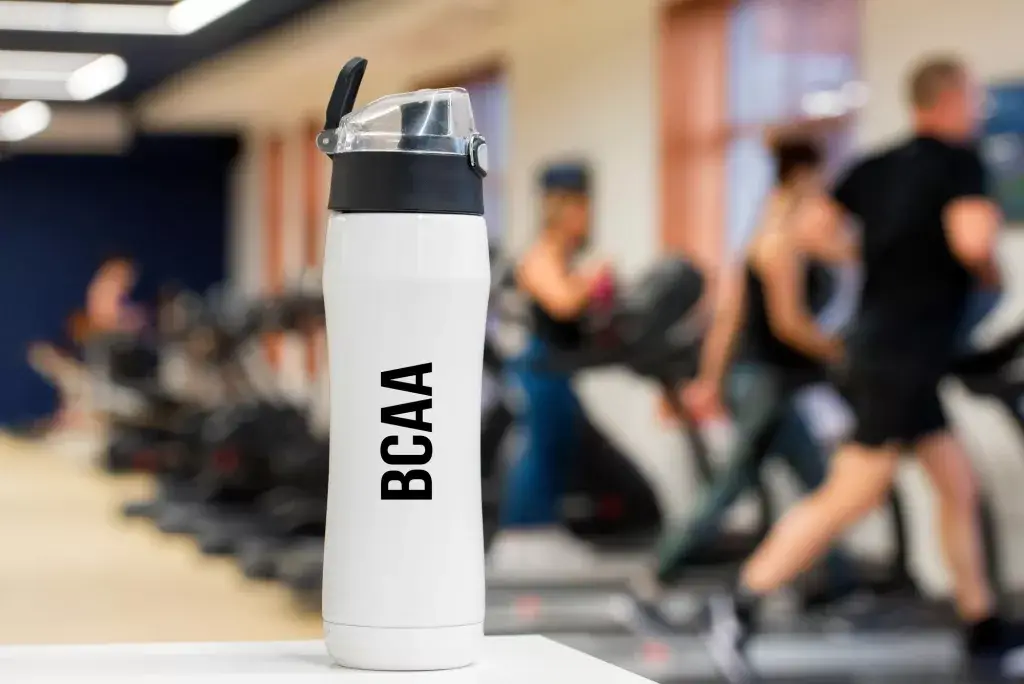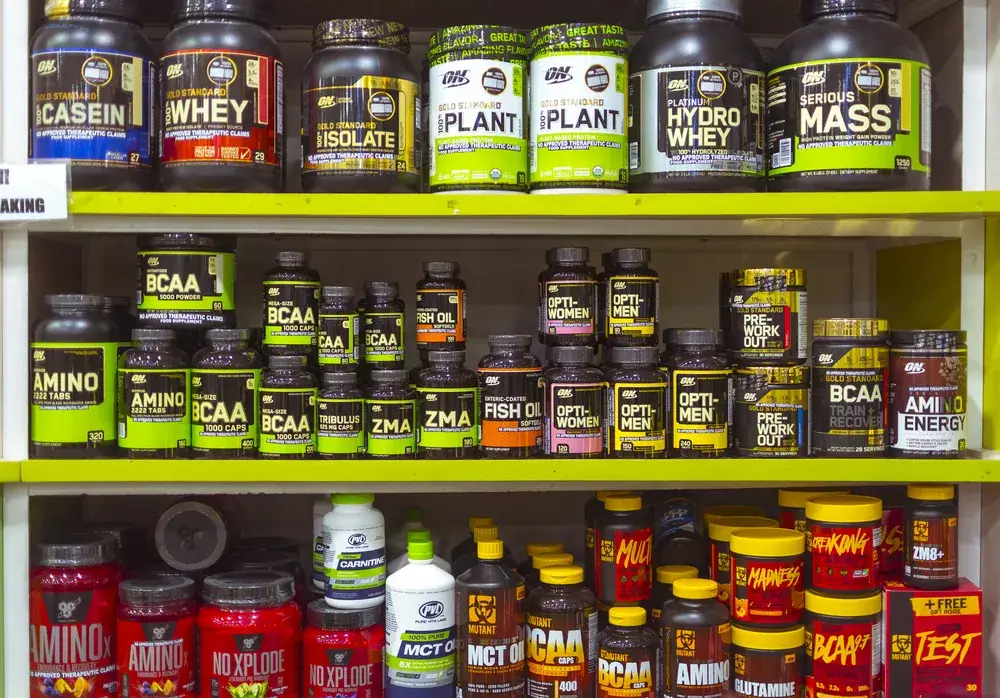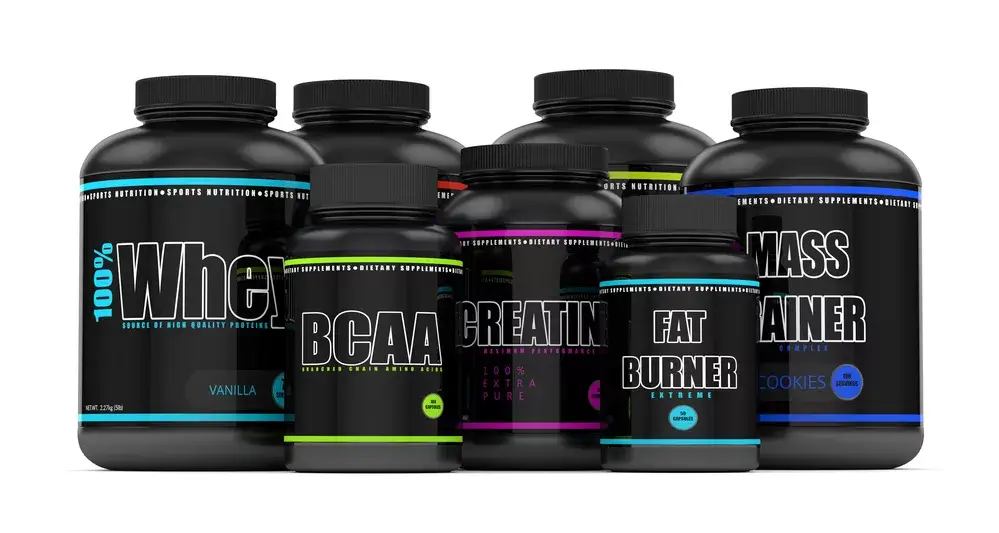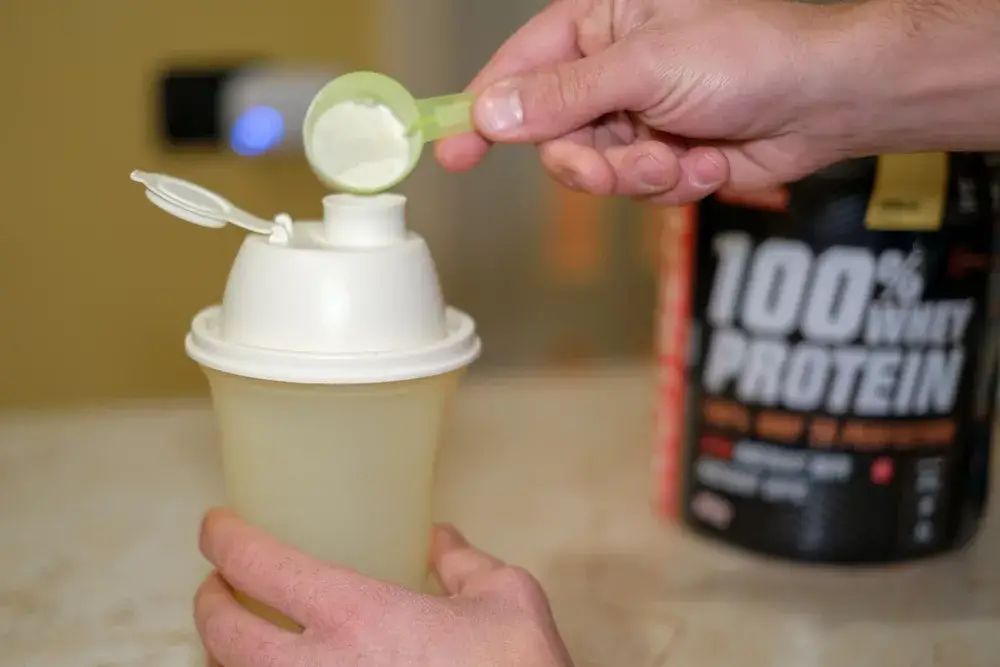Red rice gained its reputation by becoming one of the ingredients to contribute a healthy weight loss. Aside from that, its cholesterol-lowering effect is so valuable that it has become the top prescriptions of nutritionists and doctors to aid in therapeutic diet. You’ll be surprised at the some of the facts about red rice as we give you the 5 things you need to know about how red rice can lower cholesterol.
-
This rice is actually a product of yeast.
Red rice is a product of yeast called Monascus Purpureus. These organisms are grown on rice which are responsible for its dark-red color. In fact, this kind of yeasts are cultivated and extracted to make a product known to lessen cholesterol in the body.
-
This is a natural alternative to cholesterol-lowering drugs.
Due to the action of Monascus Purpureus, red rice is also known to be a perfect alternative to treat health conditions related to cholesterol. It is now prescribed by doctors to be a good remedy for mild symptoms of high-cholesterol problems, as a natural alternative to medicines. If you are one of the people who would like to opt for this natural medicine, visit your physician for more details. There are certain safety precautions in its alternative usage because it may interact with other drugs and substances.
-
The proven effects to avoid muscle pains.
In recent studies, it has been found out that the red rice actually reduce risks of muscle pains, medically known as myalgia. This symptom usually is experienced by patients who take medications to lower the low-density lipoprotein (LDL). According to the study, patients who are taking this type of medication experience lower incidence of myalgia when replaced with red rice.
-
Amazing benefits to gastric problems.
The use of red rice has been around in ancient times where China discovered its potent benefits to health. Red rice has mild healing benefits to many gastric problems including diarrhea and indigestion. Other benefits include improved spleen function, increase blood circulation, good digestion and absorption.
-
Red rice cholesterol has its own method for weight management.
Since it aids in lowering levels of cholesterol, it goes to say that red rice is also a good aid to lose weight. With its natural nutrients and fiber, more toxins are washed out while it continues to help the body attain a regular bowel movement.
These are the top 5 things you should know about how red rice can lower cholesterol. Among these benefits, there is always one that fits the body’s needs. With its holistic way in taking care of the body, it is no wonder why this ingredient has been creating buzz in the wellness industry. Although these are said to be natural and effective, there are also safety issues that go along with it. In fact, health professionals warn people to take extra precaution in using these products as they contain potent substances that may be detrimental to one’s overall health. To be safe than sorry, be sure to get an approval of your doctor before incorporating red rice to your lifestyle.
You Might also like
-
Building Muscle and Speeding Up Recovery: Can BCAAs Be Your Secret Weapon?
Ever hit the gym and pushed yourself to the limit, only to be greeted by days of muscle soreness that slows you down? If you’re a fitness enthusiast or athlete, you’re likely familiar with this struggle. While proper training and a balanced diet are crucial for building muscle and optimizing recovery, some people turn to Branched-Chain Amino Acids (BCAAs) for an extra edge.
But do BCAAs truly live up to the hype? Can they help you recover faster and build more muscle? These are common questions amongst fitness enthusiasts, and the answers might surprise you. In this article, we’ll delve into the science behind BCAAs and muscle recovery, explore the potential benefits (and limitations) of BCAA supplementation, and equip you with the knowledge to decide if they’re a worthwhile addition to your fitness routine.
Along the way, we’ll address your burning questions:
- Do BCAAs actually build muscle?
- Can BCAAs help reduce muscle soreness and speed up recovery?
We’ll separate fact from fiction and provide you with the information you need to make informed decisions about your fitness journey.
Key Takeaways
- BCAAs (Leucine, Isoleucine, Valine) are essential amino acids that might play a role in muscle protein synthesis and recovery after exercise.
- The benefits of BCAAs for muscle recovery are promising, but research is ongoing. Their effectiveness might depend on your overall diet and protein intake.
- BCAAs work best when combined with a healthy diet, proper training, and adequate rest.
- Consult with a healthcare professional before starting any new supplement regimen.
Understanding BCAAs and Muscle Recovery
Understanding BCAAs and Muscle Recovery: Building Blocks and Potential Benefits
Now that we’ve explored the potential of BCAAs to enhance your fitness journey, let’s dive deeper into the science.
What are BCAAs and Why Do They Matter?
Branched-Chain Amino Acids (BCAAs) are a group of three essential amino acids: Leucine, Isoleucine, and Valine. Unlike other amino acids, your body can’t produce them on its own, so you must obtain them through your diet or supplements.
These essential BCAAs play a crucial role in muscle protein synthesis (MPS), the process by which your body builds and repairs muscle tissue. Leucine, in particular, acts as a key regulator of MPS, signaling your body to start building muscle after exercise.
So, how might BCAAs potentially aid muscle recovery?
There are two main theories:
- Increased Muscle Protein Synthesis: As mentioned earlier, BCAAs, particularly Leucine, can stimulate MPS. After a tough workout, your muscles break down to rebuild stronger. By potentially increasing MPS, BCAAs might help your body rebuild muscle tissue faster, leading to quicker recovery [1].
- Reduced Muscle Breakdown: Exercise can also trigger the breakdown of muscle protein. Some studies suggest that BCAAs might help reduce this breakdown, potentially minimizing muscle soreness and speeding up recovery time.
Important to Consider: Limitations and Conflicting Research
While the science behind BCAAs and muscle recovery is promising, it’s important to acknowledge some limitations and conflicting research:
- The impact of BCAAs might be dependent on factors like your overall diet. If you already consume a sufficient amount of protein through your diet, the additional benefit of BCAA supplementation might be minimal.
- Research findings can be mixed. Some studies show positive effects of BCAAs on muscle recovery, while others show little to no significant difference. More research is needed to solidify the specific benefits of BCAAs for various athletes and fitness enthusiasts.
Unveiling the Benefits (if any) of BCAA Supplements: Fact or Fiction?
With the science behind BCAAs and muscle recovery laid out, let’s explore the potential benefits of BCAA supplementation.
Reduced Muscle Soreness:
Muscle soreness, a common experience after intense workouts, can significantly impact performance and training consistency. Some studies suggest that BCAAs might help reduce muscle soreness by potentially minimizing muscle breakdown after exercise. This could lead to a quicker return to the gym and a more consistent training routine.
Improved Muscle Recovery Time:
By potentially stimulating muscle protein synthesis and reducing protein breakdown, BCAAs might contribute to faster muscle recovery after exercise. This could be particularly beneficial for athletes or individuals engaging in high-intensity training programs where recovery time is crucial.
Increased Muscle Protein Synthesis (With a Caveat):
As discussed earlier, Leucine, a key BCAA, acts as a trigger for muscle protein synthesis. Studies suggest that BCAA supplementation might enhance MPS, especially when combined with resistance training. However, it’s important to note that this benefit is most pronounced for individuals who might not be consuming enough protein through their diet. If you’re already getting a sufficient amount of protein from whole food sources, the additional impact of BCAA supplements on MPS might be minimal.
Important Reminder: BCAAs Are Not a Magic Bullet
It’s crucial to remember that BCAAs are not a magic solution for muscle growth and recovery. They work best when combined with a healthy diet rich in protein and a well-structured training program. Getting enough sleep and proper hydration are also essential factors for optimal recovery.
Unveiling the Optimal Timing: When to Take BCAAs for Muscle Growth and Recovery
A critical question for fitness enthusiasts considering BCAA supplementation is: When should I take them for the best results?
The research on the optimal timing of BCAA intake is ongoing, but here’s what we know so far:
Pre-Workout:
Some studies suggest that consuming BCAAs before your workout might be beneficial. The theory is that it can help elevate blood levels of BCAAs, particularly Leucine, which could be readily available to stimulate muscle protein synthesis during exercise. This might be particularly advantageous for fasted workouts or those performed later in the day when your body’s natural BCAA stores are potentially depleted.
Post-Workout:
This is the most widely studied timing for BCAA consumption. The idea is that BCAAs can help kickstart muscle repair and rebuilding processes after a challenging workout by potentially increasing muscle protein synthesis and reducing protein breakdown.
Pre- and Post-Workout:
Combining pre- and post-workout BCAA intake might offer the most comprehensive support for muscle growth and recovery, especially for athletes or individuals engaged in intense training programs. This approach ensures a continuous supply of BCAAs throughout the workout window, potentially maximizing MPS and minimizing muscle breakdown.
Important Considerations:
- The optimal timing might vary depending on your individual goals and training program. More research is needed to definitively determine the best timing strategy for different populations.
- If you’re already consuming a protein shake pre- or post-workout, it likely already contains BCAAs. Whole food sources like meat, poultry, fish, eggs, and dairy products also naturally contain BCAAs.
- Focus on a well-rounded diet and training program. BCAAs should be viewed as a potential supplement, not a replacement for a healthy lifestyle and proper training.
Choosing the Right BCAA Supplement: Navigate the Supplement Aisle with Confidence
Choosing the Right BCAA Supplement: Navigate the Supplement Aisle with Confidence
So, you’ve decided to explore BCAA supplements as part of your fitness routine. But with a vast array of options available, how do you choose the right one? Here are some key factors to consider:
-
BCAA Ratio: The most common BCAA ratio is 2:1:1 (Leucine:Isoleucine:Valine). Leucine is the most crucial BCAA for muscle protein synthesis, so a higher Leucine content might be beneficial. However, the optimal ratio might vary depending on your individual goals and needs.
-
Additional Ingredients: Some BCAA supplements contain additional ingredients like electrolytes, glutamine, or caffeine. Electrolytes can be helpful for replenishing fluids lost through sweat, while glutamine might offer additional recovery benefits. However, these extras are not essential and may increase the cost. Consider your specific needs when evaluating these add-ons.
-
Brand Reputation and Quality Control: Look for reputable brands with a commitment to quality control and third-party testing to ensure the supplement’s purity and potency.
-
Price and Value: BCAA supplements can vary significantly in price. Don’t get swayed by the biggest tub or the flashiest label. Focus on the ingredients, dosage, and brand reputation to get the best value for your money.
Here are some additional tips:
- Read reviews from trusted sources.
- Start with a small tub to see how your body reacts before committing to a larger quantity.
- Consult with a healthcare professional before starting any new supplement, especially if you have any underlying health conditions.
By considering these factors, you can make an informed decision and choose a BCAA supplement that aligns with your goals and budget.
Comparison Table: Top BCAA Supplements (by BCAA Ratio and Key Ingredients)
Brand Name BCAA Ratio Key Ingredients Highlights Transparent Labs Bulk BCAAs 5000 Powder 2:1:1 (Leucine:Isoleucine:Valine) Just BCAAs Simple, well-reviewed, focus on BCAAs Optimum Nutrition Essential Amino Acids 1000 Caps Varied (all BCAAs + additional essential amino acids) All 9 essential amino acids Complete package of essential amino acids Scivation Xtend Original BCAA Powder 2:1:1 (Leucine:Isoleucine:Valine) BCAAs, Glutamine, Citrulline Malate, Electrolytes Comprehensive formula with recovery-supportive ingredients Myprotein BCAA Powder 4:1:1 (Leucine:Isoleucine:Valine) BCAAs with higher Leucine content Higher Leucine for potential muscle protein synthesis benefits BulkSupplements.com BCAA 1:2:1 Powder 1:2:1 (Leucine:Isoleucine:Valine) Just BCAAs Affordable, basic BCAA powder Please note: This table is not an exhaustive list, and it’s always best to conduct your own research to find the best BCAA supplement for your needs.
Learn about our review process
Top 5 BCAA Supplement Contenders (Based on Research and Reviews): Navigating the Choices
We’ve explored the science behind BCAAs and how they might influence muscle recovery. We’ve also discussed factors to consider when choosing a BCAA supplement. Now, let’s delve into some of the top contenders available on Amazon to help you navigate the selection process. Remember, this is not an exhaustive list, and it’s essential to conduct your own research to find the best fit for your needs.
1. Optimum Nutrition Essential Amino Acids 1000 Caps
- BCAA Ratio: Varied (includes all BCAAs plus additional essential amino acids) at 1 gram per capsule (serving size is 5 capsules)
- Key Ingredients: All nine essential amino acids, including 2.5 grams of BCAAs (Leucine, Isoleucine, Valine) per serving
- Highlights: Optimum Nutrition’s Essential Amino Acid formula provides a complete package of essential amino acids, including BCAAs. This might be beneficial for individuals who want a broader spectrum of amino acid support.
- User Reviews: Positive reviews mention the convenient capsule form and the inclusion of all essential amino acids. Negative reviews mention the high cost per serving compared to pure BCAA powders.
No products found.
2. MuscleTech Amino Build BCAA Amino Acids + Electrolyte Powder
- BCAA Ratio: 2:1:1 (Leucine:Isoleucine:Valine) at 6 grams per serving
- Key Ingredients: BCAAs, Electrolytes, Beta-Alanine, Taurine (for performance)
- Highlights: MuscleTech Amino Build offers a BCAA formula with added electrolytes and other performance-oriented ingredients like beta-alanine and taurine. This might be appealing for athletes seeking a comprehensive pre-workout supplement.
- User Reviews: Positive reviews mention the taste, the variety of flavors, and the inclusion of additional ingredients for performance. Negative reviews mention the artificial flavors and the higher price point compared to some basic BCAA powders.
No products found.
3. Scivation Xtend Original BCAA Powder
- BCAA Ratio: 2:1:1 (Leucine:Isoleucine:Valine) at 7 grams per serving
- Key Ingredients: BCAAs, Glutamine, Citrulline Malate, Electrolyte Blend (for hydration)
- Highlights: Scivation Xtend offers a comprehensive BCAA formula with additional recovery-supportive ingredients like glutamine and citrulline malate. This might be appealing for athletes seeking a more well-rounded supplement.
- User Reviews: Positive reviews mention the wide variety of flavors, the inclusion of additional ingredients, and the mixability of the powder. Negative reviews mention the artificial flavors and the higher price point compared to some basic BCAA powders.
No products found.
4. Nutricost BCAA Powder 2:1:1 (Unflavored, 90 Servings) – Branched Chain Amino Acids
- BCAA Ratio: 2:1:1 (Leucine:Isoleucine:Valine) at 6 grams per serving
- Key Ingredients: Just BCAAs (Leucine, Isoleucine, Valine)
- Highlights: Nutricost offers a simple, unflavored BCAA powder at an affordable price point. This is a good option for users who are looking for a basic BCAA supplement without any additional ingredients or flavors. The high number of servings (90) makes it a cost-effective choice.
- User Reviews: Since Nutricost is a less prominent brand compared to others on this list, there might be fewer user reviews readily available online. However, you can try searching for reviews on bodybuilding forums or independent supplement review websites.
No products found.
Important Note: Be aware that unflavored BCAA powders can be quite bland. If taste is a concern for you, you might want to consider a flavored option from another brand or mix the Nutricost powder with flavored water or a pre-workout drink.
5. BulkSupplements.com BCAA 1:2:1 Powder
- BCAA Ratio: 1:2:1 (Leucine:Isoleucine:Valine) at 5 grams per serving
- Key Ingredients: Just BCAAs (Leucine, Isoleucine, Valine)
- Highlights: BulkSupplements.com offers a very affordable, basic BCAA powder with a 1:2:1 BCAA ratio. This might be a good option for budget-minded users who are only interested in BCAAs.
- User Reviews: Positive reviews mention the excellent price and the purity of the product. Negative reviews mention the bland taste (unflavored) and the need for a separate measuring tool (sold separately).
Remember: This is just a small sampling of the many BCAA supplements available. It’s crucial to consider your individual needs and preferences when making your choice.
No products found.
The Final Verdict: BCAAs for Muscle Recovery – A Recap
BCAAs have emerged as popular supplements amongst fitness enthusiasts, particularly for their potential role in muscle recovery. While research suggests BCAAs might offer some benefits, including reduced muscle soreness and potentially faster recovery times, the evidence is not conclusive.
Here are some key takeaways:
- BCAAs, particularly Leucine, might stimulate muscle protein synthesis, aiding muscle growth and repair after exercise.
- The effectiveness of BCAAs might depend on factors like your overall diet and protein intake. If you’re already consuming a sufficient amount of protein, the additional benefit of BCAA supplements might be minimal.
- BCAAs are not a magic bullet. They work best when combined with a healthy diet rich in protein and a well-structured training program. Getting enough sleep and proper hydration are also crucial for optimal recovery.
The Road to Muscle Recovery is a Multi-Lane Highway
Remember, building muscle and optimizing recovery is a holistic process. While BCAAs might be a potential tool in your belt, they should not overshadow the importance of a well-rounded diet, a proper training program, and adequate rest.
6 FAQs About BCAAs and Muscle Recovery
-
What are BCAAs?
- BCAAs are Branched-Chain Amino Acids, a group of three essential amino acids (Leucine, Isoleucine, Valine) that your body cannot produce on its own and must obtain through diet or supplements.
-
Do BCAAs help with muscle recovery?
- Research suggests BCAAs might help reduce muscle soreness and potentially improve recovery time after exercise. However, the evidence is not conclusive, and their effectiveness might depend on your overall diet.
-
What’s the best time to take BCAAs?
- The optimal timing for BCAA intake is still being studied. Some research suggests pre-workout or post-workout consumption might be beneficial, while others suggest both.
-
Do I need BCAAs if I get enough protein?
- If you’re already consuming a sufficient amount of protein through whole food sources, the additional benefit of BCAA supplements might be minimal.
-
Are there any side effects to taking BCAAs?
- BCAAs are generally safe for most healthy adults when taken at recommended doses. However, potential side effects like nausea, diarrhea, and fatigue have been reported in some cases.
-
Should I consult a healthcare professional before taking BCAAs?
- It’s always recommended to consult with a doctor before starting any new supplement regimen, especially if you have any underlying health conditions.
Consult a Healthcare Professional Before Supplementing
If you’re considering adding BCAA supplements to your routine, it’s always wise to consult with a healthcare professional first. They can help you determine if BCAAs are appropriate for your individual needs and goals.
-
Pre-Workout vs. Post-Workout Supplements: What You Need to Know for Optimal Fitness Results
In the realm of fitness, the timing of your nutrition is just as crucial as the workouts themselves. It’s a key factor that can significantly influence your performance, recovery, and overall progress towards your fitness goals. This is where the roles of pre-workout and post-workout supplements come into play, each serving distinct purposes that complement your exercise regimen. Pre-workout supplements are designed to prime your body for peak performance during your workouts, while post-workout supplements aid in recovery and muscle rebuilding after the exertion. The purpose of this article is to delve into the specifics of pre vs post workout supplements, providing insights into how to choose the best options available on Amazon, tailored to meet different fitness objectives.
Key Takeaways
- Pre-workout supplements are designed to enhance energy, focus, and endurance, allowing for more effective workouts.
- Post-workout supplements support recovery, muscle repair, and nutrient replenishment after exercise.
- Both types of supplements should be chosen based on individual fitness goals, dietary needs, and safety considerations.
- Timing and proper hydration are crucial for maximizing the benefits of pre- and post-workout supplements.
- Always consult with a healthcare provider before starting any new supplement regimen, especially if you have pre-existing health conditions or are taking other medications.
Comparison Table: Pre-Workout vs. Post-Workout Supplements
Feature Pre-Workout Supplements Post-Workout Supplements Primary Goal Enhance workout performance Support recovery and muscle repair Key Ingredients Caffeine, beta-alanine, creatine Protein, BCAAs, glutamine, electrolytes Timing 30-60 minutes before exercise Within 45 minutes after exercise Benefits Increased energy, focus, endurance Improved muscle recovery, growth Considerations Potential overstimulation, hydration Protein quality, dietary preferences Understanding Pre-Workout Supplements
Definition and Purpose of Pre-Workout Supplements
Pre-workout supplements are designed to amplify your energy, improve your stamina, and sharpen your focus during workouts. They’re formulated to prepare both your body and mind for the demands of intense exercise sessions, ensuring you can perform at your peak from start to finish. The ultimate goal of a pre-workout supplement is to help you achieve better results from your training by enhancing your ability to train harder and for longer periods.
Key Ingredients Typically Found in Pre-Workouts and Their Benefits
- Caffeine: A central nervous system stimulant, caffeine is well-known for its ability to increase alertness and delay fatigue. It enhances endurance and performance by mobilizing fat stores and increasing the availability of energy during workouts.
- Beta-Alanine: This amino acid boosts the concentration of carnosine in muscles, helping to reduce lactic acid accumulation during high-intensity activities. The result is a significant delay in muscle fatigue and an increase in overall workout performance.
- Creatine: Creatine is involved in the production of ATP (adenosine triphosphate), the primary energy carrier in cells. It increases physical performance in successive bursts of short-term, high-intensity exercise, making it perfect for weightlifters, sprinters, and anyone performing heavy lifting or explosive movements.
How Pre-Workout Supplements Enhance Performance, Endurance, and Focus
How Pre-Workout Supplements Enhance Performance, Endurance, and Focus
By combining ingredients like caffeine, beta-alanine, and creatine, pre-workout supplements can significantly improve your exercise capabilities. Caffeine sharpens focus and awareness, allowing you to remain dedicated and attentive to your workout. Beta-alanine and creatine work to enhance physical performance by delaying fatigue and increasing energy production, respectively. This combination ensures that both your mind and body are primed for peak performance, enabling you to push beyond your usual limits with increased endurance and strength.
Considerations for Choosing a Pre-Workout Supplement
When selecting a pre-workout supplement, it’s essential to consider the following factors to find the best fit for your fitness journey:
- Ingredient Transparency: Look for products that clearly list their ingredients and dosages. This transparency allows you to understand exactly what you’re consuming and to avoid any hidden or potentially harmful substances.
- Dietary Restrictions: If you have specific dietary restrictions or preferences (such as vegan, gluten-free, or allergen-free), ensure the pre-workout supplement you choose complies with these requirements.
- Specific Fitness Goals: Your fitness objectives should guide your choice of pre-workout supplement. For instance, if your focus is on endurance training, look for supplements rich in beta-alanine. Conversely, if increasing strength is your goal, prioritize products with creatine.
- Side Effects and Tolerance: Pay attention to how your body responds to different ingredients, especially stimulants like caffeine. Some individuals may experience jitters, anxiety, or gastrointestinal discomfort. Starting with a half dose can help gauge your tolerance.
By carefully considering these aspects, you can select a pre-workout supplement that not only boosts your workout performance but also aligns with your health priorities and fitness goals, setting the stage for enhanced and sustained exercise success.
Exploring Post-Workout Supplements
Exploring Post-Workout Supplements
Definition and Purpose of Post-Workout Supplements
Post-workout supplements are specifically designed to aid in the recovery process after intense physical activity. Their primary purpose is to replenish lost nutrients, facilitate muscle repair and growth, and reduce recovery time. After a workout, your body is in a state of repair, seeking to replenish glycogen stores and repair the micro-tears in muscle fibers. The right post-workout supplement can significantly impact the speed and effectiveness of this recovery process, enabling you to return to your training regime sooner and with better results.
Critical Components of Post-Workouts and Their Roles in Recovery
- Protein: Essential for muscle repair and growth. Consuming protein after a workout provides the amino acids necessary for protein synthesis, helping to rebuild the damaged muscle tissue.
- BCAAs (Branched-Chain Amino Acids): Comprising leucine, isoleucine, and valine, BCAAs are crucial for muscle recovery. Leucine, in particular, plays a key role in protein synthesis, while isoleucine and valine help regulate blood sugar levels and provide energy to muscle cells.
- Glutamine: An amino acid that aids in the recovery process by reducing muscle soreness and supporting immune system function, which can be compromised after intense workouts.
- Electrolytes: Lost through sweat during exercise, electrolytes such as sodium, potassium, and magnesium are essential for hydration and maintaining proper muscle function. Replenishing electrolytes helps prevent cramping and facilitates muscle recovery.
The Importance of Post-Workout Nutrition for Muscle Recovery, Growth, and Replenishment
Effective post-workout nutrition is vital for optimal muscle recovery and growth. It helps replenish glycogen stores depleted during exercise, aids in the repair of damaged muscle tissue, and supports overall recovery to reduce fatigue and soreness. This nutritional support is crucial not only for muscle rebuilding but also for enhancing overall performance in subsequent workouts.
Tips for Selecting the Right Post-Workout Supplement
- Protein Quality: Look for high-quality protein sources such as whey, casein, or plant-based proteins that offer a complete amino acid profile. This ensures efficient muscle repair and growth.
- Recovery Aids: Choose supplements that include additional recovery aids like BCAAs and glutamine to enhance the muscle repair process and decrease recovery time.
- Avoiding Unnecessary Additives: Opt for supplements with minimal artificial sweeteners, colors, and preservatives. These additives offer no nutritional benefit and may hinder your health and fitness goals.
- Dietary Needs and Preferences: Consider any specific dietary needs or preferences you have, such as lactose intolerance or veganism, to ensure the supplement aligns with your lifestyle and dietary restrictions.
By prioritizing these factors when selecting a post-workout supplement, you can significantly enhance your recovery process, allowing for greater muscle growth, reduced soreness, and improved overall athletic performance. Remember, the goal of post-workout supplementation is to support your body’s natural recovery process, paving the way for stronger, more resilient muscles and better preparation for your next training session.
The Synergy Between Pre- and Post-Workout Supplements
The Synergy Between Pre- and Post-Workout Supplements
The intricate dance between pre- and post-workout supplements is a testament to the nuanced approach required for optimal fitness outcomes. Understanding how these supplements interact and complement each other can significantly enhance your training results, recovery, and overall well-being.
How Pre- and Post-Workout Supplements Work Together to Enhance Overall Fitness Outcomes
Pre-workout supplements prime your body for peak performance during exercise by boosting energy levels, increasing endurance, and sharpening focus. They set the stage for you to push harder and achieve greater intensity in your workouts. Post-workout supplements, on the other hand, step in after your training session has concluded to support recovery, muscle repair, and growth. They ensure that your body has the necessary nutrients to repair the wear and tear of exercise and to build stronger muscles.
The synergy between these supplements lies in their combined ability to optimize the workout process from start to finish. Pre-workouts enhance your ability to perform at your best, allowing you to maximize the efficacy of your training session. Post-workouts then capitalize on the stressed state of your muscles immediately after exercise, providing them with the building blocks required for recovery and growth. This seamless integration ensures a holistic approach to fitness that addresses both performance and recovery.
Timing Your Supplements for Maximum Effectiveness: The Anabolic Window and Beyond
The concept of the “anabolic window” has been a topic of much debate among fitness enthusiasts and experts alike. This term refers to the short time period after exercise during which your body is believed to be more receptive to nutrients for recovery and growth. Consuming post-workout supplements immediately to shortly after your workout is thought to maximize the body’s ability to repair and build muscle tissue.
While the importance of this window may vary from person to person, the underlying principle remains solid: timing matters. Pre-workout supplements should be taken 30 minutes to an hour before exercising to allow the active ingredients to take effect. Post-workout supplements, particularly those rich in protein and carbohydrates, are most beneficial when consumed within 45 minutes after finishing your exercise routine.
Balancing Supplementation with Whole Food Sources for Optimal Health and Performance
While supplements play a crucial role in optimizing pre- and post-workout nutrition, they should not be the sole source of your nutritional intake. Whole foods provide essential vitamins, minerals, antioxidants, and other nutrients that supplements alone cannot offer. A balanced diet rich in fruits, vegetables, whole grains, lean proteins, and healthy fats ensures a comprehensive nutrient profile that supports overall health and enhances performance.
Integrating whole foods with your supplementation strategy offers the best of both worlds: the targeted, fast-acting benefits of supplements and the broad, holistic advantages of whole food nutrition. This approach not only maximizes your fitness outcomes but also promotes a sustainable, healthy lifestyle that supports long-term well-being.
By understanding and leveraging the synergy between pre- and post-workout supplements, timing their intake appropriately, and balancing them with whole food sources, you can create a powerful and effective nutrition strategy that fuels your fitness journey, supports rapid recovery, and contributes to achieving your health and performance goals.
Tailoring Your Supplement Strategy to Your Fitness Goals
Crafting a supplement strategy that aligns with your fitness goals is pivotal for maximizing the effectiveness of your regimen. Whether you aim for weight loss, muscle gain, enhanced endurance, or overall health improvement, the right supplements can significantly influence your outcomes. Here’s how to customize your supplement intake based on these common fitness objectives, including recommendations for top-rated Amazon products.
Weight Loss
For those focused on weight loss, supplements that boost metabolism, enhance fat burning, and reduce appetite can be particularly beneficial.
- Caffeine: Known for its metabolism-boosting effects, caffeine can also enhance energy levels for more vigorous workouts.
- Green Tea Extract: Contains compounds like EGCG, which can aid in fat oxidation.
- Conjugated Linoleic Acid (CLA): May help reduce body fat by enhancing fat metabolism.
Featured Favorites: Applied Nutrition Green Tea Fat Burner
No products found.
Muscle Gain
Muscle gain requires supplements that support protein synthesis, energy production, and recovery.
- Whey Protein: Provides essential amino acids necessary for muscle repair and growth.
- Creatine Monohydrate: Increases muscle energy availability, improving performance and accelerating muscle growth.
- BCAAs: Supports muscle recovery and reduces soreness post-workout.
Featured Favorites: MuscleTech Platinum 100% Creatine, Ultra-Pure Micronized Creatine Powder
No products found.
Endurance Improvement
Endurance athletes need supplements that enhance energy sustainability and delay fatigue.
- Beta-Alanine: Buffers acid in muscles, improving performance in high-intensity activities.
- Electrolytes: Essential for maintaining hydration and preventing cramps during long-duration exercises.
- Carbohydrate Supplements: Provide readily available energy during prolonged workouts.
Featured Favorites: Science in Sport Go Electrolyte Energy Drink Powder
No products found.
Overall Health
For those seeking to improve overall health, supplements that provide broad nutritional support are key.
- Multivitamins: Fill dietary gaps, ensuring you get a wide range of essential nutrients.
- Omega-3 Fatty Acids: Support heart health, cognitive function, and inflammation reduction.
- Vitamin D: Essential for bone health, immune function, and mood regulation.
RunThaCity’s Pick: Nordic Naturals Ultimate Omega
No products found.
Safety and Considerations
Navigating the world of pre- and post-workout supplements requires not just an understanding of their benefits but also an awareness of safety considerations and potential pitfalls. Here, we address common misconceptions, safety concerns, and best practices for supplement use in your fitness journey.
Common Misconceptions and Safety Concerns
- Misconception: More is better.
- Reality: Exceeding recommended doses of supplements can lead to adverse effects. For instance, too much caffeine can cause jitters, insomnia, and heart palpitations, while excessive intake of creatine can lead to gastrointestinal issues.
- Misconception: Supplements are a complete replacement for meals.
- Reality: Supplements are intended to complement a balanced diet, not replace whole food sources. Relying solely on supplements can lead to nutrient imbalances and deficiencies.
Safety Concern: Contamination and purity.
Some supplements may contain impurities or undisclosed ingredients that can pose health risks. Opt for products that have been third-party tested and verified for purity.The Importance of Hydration
Hydration plays a crucial role in overall health and the effectiveness of your workout regimen. Certain supplements, especially those containing caffeine, can have diuretic effects, making proper hydration even more essential. Additionally, electrolyte balance, crucial for muscle function and hydration, can be disrupted by excessive sweating and supplement use. To mitigate these risks, ensure you’re consuming adequate fluids before, during, and after workouts.
Potential Interactions with Other Supplements
Combining supplements or taking them alongside certain medications can lead to unforeseen interactions. For example, combining different stimulant-based pre-workouts can exacerbate their effects, increasing the risk of cardiovascular issues or anxiety. It’s vital to research and understand the potential interactions between supplements or consult a healthcare provider for guidance.
When to Consult a Healthcare Provider or Nutritionist
Consultation with a healthcare professional is advisable under several circumstances, including:
- Existing health conditions: If you have any pre-existing medical conditions, especially those related to the heart, liver, or kidneys.
- Medication use: If you’re taking prescription or over-the-counter medications, to avoid potential interactions.
- Pregnancy or breastfeeding: Most supplements have not been tested for safety in pregnant or breastfeeding women.
- Uncertainty about your needs: A healthcare provider or nutritionist can offer personalized advice based on your health status and fitness goals.
Nutritionist Insight: Consider working with a nutritionist who specializes in sports nutrition. They can tailor your supplement strategy to your specific needs, dietary restrictions, and fitness goals, ensuring a balanced approach to supplementation.
6 FAQs About Pre- and Post-Workout Supplements
-
Can I use both pre- and post-workout supplements together?
Yes, using both can optimize your fitness results, with pre-workouts enhancing your workout performance and post-workouts aiding in recovery.
-
Do I really need supplements to see fitness results?
While not strictly necessary, supplements can complement your diet and exercise routine, potentially enhancing your results and recovery.
-
How do I choose the best supplement for me?
Consider your fitness goals, any dietary restrictions, and ingredient transparency. Consulting a healthcare provider can also provide personalized advice.
-
Are there any risks associated with pre-workout supplements?
Yes, particularly for those sensitive to stimulants. It’s important to monitor your response and adjust your intake accordingly.
-
How long should I wait to eat after taking a post-workout supplement?
It’s generally recommended to eat a balanced meal 1-2 hours after your post-workout supplement to further aid in recovery and muscle growth.
-
Can supplements replace a balanced diet?
No, supplements should complement a balanced diet, not replace it. Whole foods provide essential nutrients critical for overall health.
Conclusion
Supplements, when used correctly, can be a valuable addition to your fitness regimen. However, it’s crucial to approach their use with an informed and cautious mindset. By understanding and navigating the common misconceptions, safety concerns, and the importance of hydration and potential interactions, you can make more informed choices about your supplement use. Always prioritize a balanced diet and consult with healthcare professionals to ensure that your supplement strategy aligns safely with your health and fitness objectives.
-
Start Achieving Lasting Health and Happiness Now
Living a healthy lifestyle is not just about exercising and eating right. While those elements are important, living a healthy lifestyle is also about making small, consistent changes to your daily routine that can have a significant impact on your physical and mental well-being. Incorporating simple habits into your daily life can go a long way in boosting your health, and the good news is that it’s easier than you might think. In this blog post from RunThaCity.com, we explore everyday strategies that you can adopt to improve your overall health and well-being.Start Achieving Lasting Health and Happiness Now
Plan Walking Breaks Throughout Your Day
Sitting for extended periods can have a detrimental impact on your health. It can affect your posture, blood circulation, and overall energy levels. Taking short walks throughout the day can help alleviate these problems. You can take a walk during your lunch break, make it a habit to stand up and stretch every hour, or take the stairs instead of the elevator. If you want to take a longer walk, consult a walk score map to find the best walking spots nearby. Regular physical activity can help you maintain a healthy weight, lower your risk of chronic diseases, and improve your mental health.Start Your Day With Breakfast
Making breakfast a daily habit is an excellent way to kick-start your metabolism and provide your body with the energy it needs to face the day. Consuming a nutritious breakfast can help enhance cognitive function, improve your mood and reduce your risk of overeating throughout the day. Make sure to opt for whole-grain, low-fat, and high-protein options instead of high-fat and high-calorie foods. Taking the time to prepare your breakfast instead of rushing out of the house is a form of self-care and the foundation to a great morning routine.Focus on Hydration
Staying hydrated is essential for maintaining a healthy body. Drinking water throughout the day helps regulate body temperature, remove waste, and lubricate joints. Make it a habit to drink at least 2 liters of water every day, and if you find that too difficult, try adding slices of lemon, cucumber, or mint to your water to give it some flavor. You may struggle with staying hydrated if you consume a lot of caffeine. Take time to look up the caffeine content of your favorite beverages. You may be surprised by how much you’re consuming. Remember, staying consistently hydrated can help you feel more energized, and it may also improve your skin’s appearance.SelfCaring.info
Brad, is a guest contributor for RunThaCity.com. He is passionate about empowering individuals to reach their full potential through self-care.
Brad's expertise stems from his personal journey and a genuine desire to help people flourish. He now shares his insights through [link to selfcaring.info, if available] and various guest posting opportunities.


